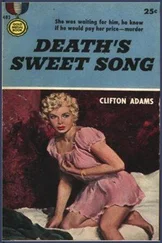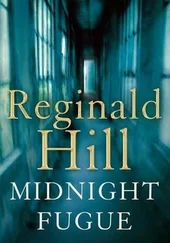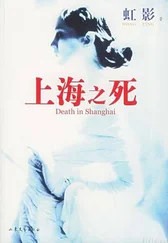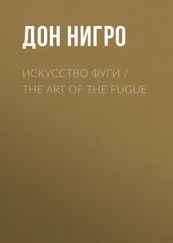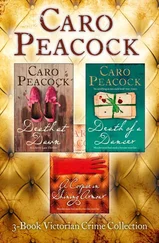Imagine yourself as the sweet breeze of Swan Valley blowing into the window as Mengliu shaved. Follow his razor blade, serving as a sort of snow plough on his cheek, piling the foam in one corner, exposing the street-smooth greenish skin. He felt his cheek, scraped a few places again, then rinsed the razor and put it in its little box in the wall cabinet. He washed his face, then raised his head and checked his reflection in the mirror from different angles. He pressed forcefully on his skin with his left hand, like a masseur — or perhaps it was more an attempt to smooth premature wrinkles. His face followed the manipulations of his fingers, going askew as he pulled and poked. If you observed carefully, you could see clearly the traits of one who belonged to the 60s generation — teeth stained by tetracycline, a lack of calcium, shattered ideals and a perplexed idleness — rather like a mirror covered with a layer of dust that made you long to reach out and wipe it clean. But you could also see that Mengliu had an open well-fed look, the look of an official. If his waist had been broader with a more protruding belly, he would pass for a mid-level cadre. Only his eyes were still very clear, unclouded by worldliness. His stiff, detached expression caused his face to wear a cold glint like the blade of a scalpel.
Now, Mengliu was as careful about his appearance as a woman. He wiggled his eyebrows — rise, shoot, pinch, spread — like lively silkworms. He puffed up his cheeks, then opened his eyes wide, and his pupils suddenly turned dull, as if a bat had just flown past. The strange face in the mirror bore none of the romantic air of the poet. Years ago, his classmates said that his ‘every pore oozed with poetry,’ and he himself believed that each drop of his sweat bore the aroma of art. But the face in front of him now was characteristic of a professional, without the slightest trace of the poet, its pores emitting only worldly indulgence and aptitude.
How could a man who wrote no poetry, put in a place where the toilet was made of gold, go about pursuing Juli with dignity? This was the question that absorbed him now.
That night the moon looked pale as it hung above the forest. The look, so melancholy, made it seem like the moon was about to break into tears.
On Beiping Street a women’s propaganda troupe appeared, headed up by Qizi. Holding a megaphone, she spoke to the crowd, making up jingles by substituting their own words for the lyrics of popular songs. A girl named Sixi played guitar as she sang. Sixi was from the Arts Department. She had a round face and dark red skin and was just over a metre and a half tall. Her raven-black hair was twisted into two thick braids. She wore the cotton print patchwork outfit typical of a minority ethnic group and jade pendants that jingled when she moved. She had a style that was simple and understated. She was healthy and fit, and her deep-set eyes were adorned with long lashes, like a row of reeds alongside a pond, which often cast their dark reflection on its surface.
Sixi could sing and dance, and she played the guitar beautifully. She had once won first prize in a singing competition for university students, and had also participated in a nationally televised song contest and got good rankings. When Qizi and the rest recommended that Sixi join the Unity Party, she was unanimously accepted. As a contribution to the Party, she composed a theme song, ‘Tomorrow’, and performed it on the spot.
The Unity Party had taken up its main position on Beiping Street, hanging up clothing and props for performances in the vicinity. An unsavoury musty smell mingled with that of instant noodles and a mimeograph from which propaganda leaflets were being printed and distributed. Sixi sat at three square tables that had been joined to make a conference table, tuning her guitar. Her knees propped her flowery skirt up as she searched for the right key, then she sang in a solid voice.
At first, everyone looked at Sixi’s fingers, lips, face, earrings and floral dress. Then, as she sang the second verse, they closed their eyes and listened. Her voice was like a ball dangling mid-air in a fog. Sixi sucked in enough air to set her saliva splashing. She issued a string of groan-like trembling sounds from her lips, then bowed deeply.
She hopped off the table, put down the guitar, then said shyly that she had written the lyrics, but they had been polished and revised by a poet. Which one? Jia Wan. Some had heard that he wrote poetry, and was especially good at political verse. The poet’s face was round but held at an angle, with a dash of pockmarks. His nose was huge, and his eyes narrow. It was the look of one who had been brought up well.
Jia Wan had made an appearance at poetry salons, but did not talk much in a crowd. He was relatively low key. He was from the same village as Mogen, a writer who, though he was not well educated was very talented, and had been admitted into the Writers’ Class in an unconventional move when he won a national award for a novella he had written. Later, he entered the Literature Department. Now he was an activist, diligent in his work with the Unity Party, passing messages, running errands, doing odd jobs, and generally making himself useful in any way he could. The Writer’s Class was a place where people of unusual abilities could be found, who often quietly helped the Unity Party by drafting and writing slogans, making donations, or offering bedsheets to be used as banners.
As the result of a campaign speech made with absolute authority, Qizi had become the backbone of the Unity Party. Hei Chun was elected by an overwhelming margin to serve as the first chairman of its meetings.
Mengliu still had not joined the Party, but in order to see Qizi, he often showed up at their activities and performed small favours for them. Sometimes he bumped into her, but they exchanged no private words. They talked occasionally, but it was strictly on the level of comrades, as if there had never been anything more between them. All of their feelings seemed to have been transferred elsewhere.
The Wisdom Bureau’s Freedom in Broadcasting Forum was an expansion of the Unity Party’s Propaganda Department. Because of the unrest amongst the people and changes in its personnel, the Unity Party had been thrown into confusion. Some members were in hiding, others had fled, many kept farewell notes handy, ready to sacrifice their lives. There were also those who had the core members of the party in their sights, intending to weaken their positions. Hei Chun particularly was under attack, with people saying that he was a womaniser, and that he had used the funds raised by the Party on luxury-brand cigarettes, alcohol, and a life of corruption and vice.
One evening the previous week, in a dimly lit corridor where the whitewash on the termite-infested wall was flaking off in slivers, Mengliu had come out from the washroom and overheard a conversation between Hei Chun and Qizi. Hei Chun wanted Qizi to take over as chairperson, saying she was the only one capable enough for the role. He had written a letter of resignation and would inform the Party the next day. Qizi said he couldn’t withstand the wind and rain, and that his heart became overwhelmed with anxiety at the first signs of trouble.
What made Mengliu’s heart race was not that Hei Chun wanted to elevate Qizi, but that he had confessed his feelings for her, using this critical moment when she was vulnerable to express his affection. He bore with the unpleasantness and listened as Hei Chun continued.
‘Last year in the twelfth lunar month, your long hair was awash in sunlight as you skated alone on the ice, eating candied hawthorns. I came up behind you, raced past, and caused you to fall. The candy stick flew from your hand and made me stumble too. I cursed, then turned back and saw you, looking like a penguin with your arms flapping as you tried to catch your balance. Your eyes were dark and your face clear and golden. At that moment, I forgot everything. I couldn’t even remember that I had crashed into you. I asked which department you were in, and you asked if I was going to go to your department to apologise. I said I wanted to bring you a bunch of flowers, and asked what flowers you liked. I slid up next to you, and you recognised me then. You said my skating was much worse than my poetry…’
Читать дальше



